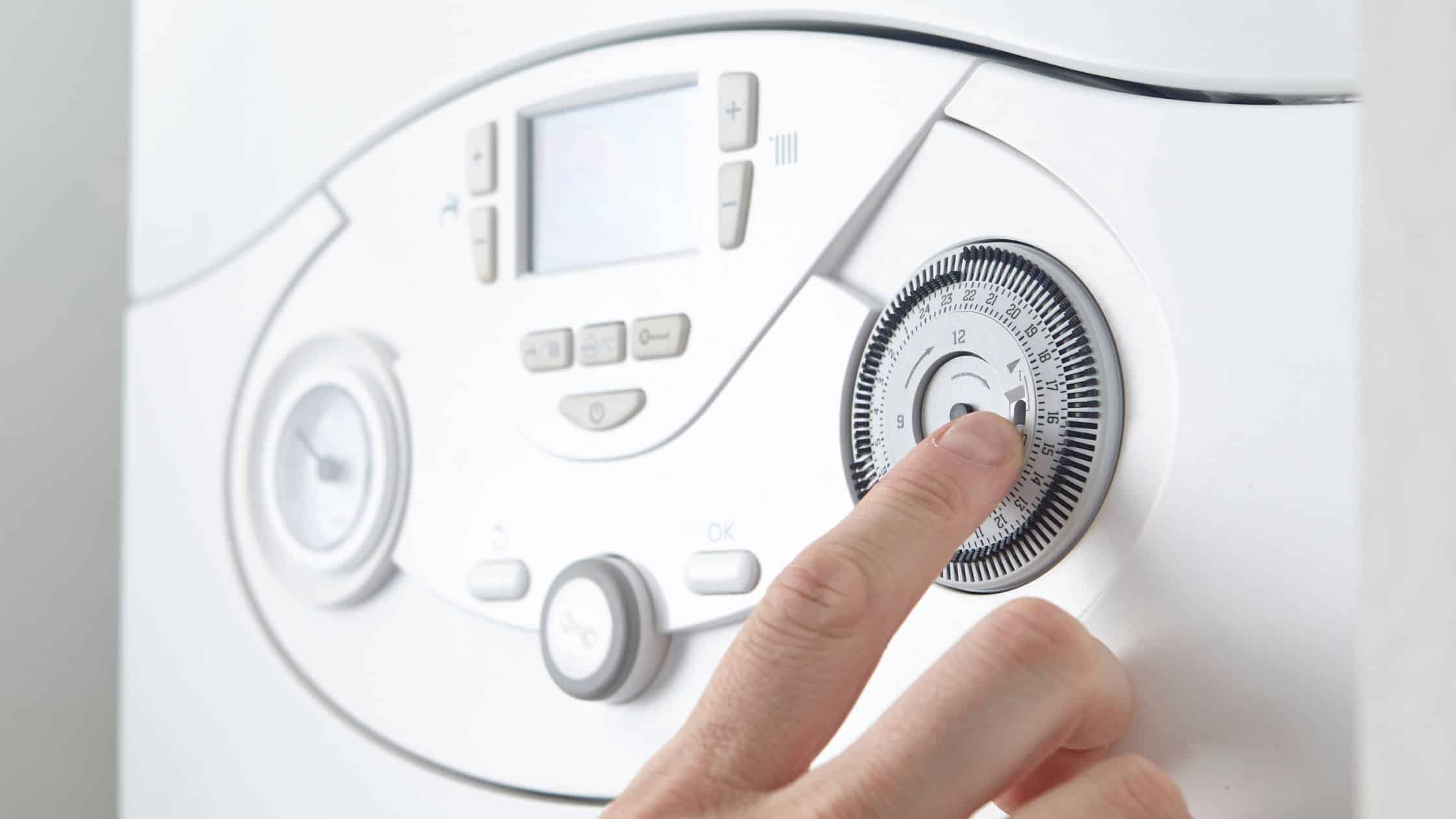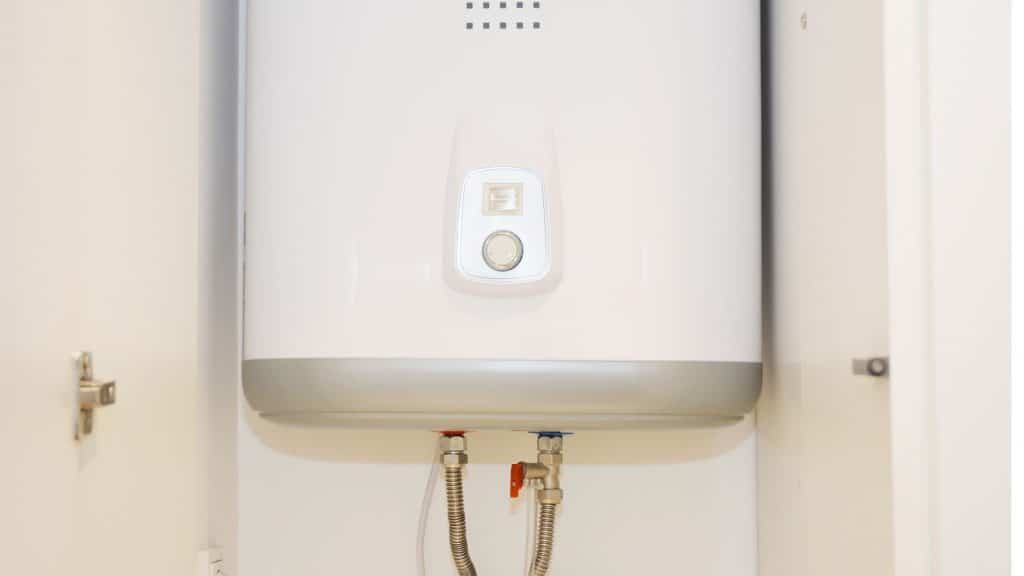What is a condensing boiler? Is it better than a standard boiler? How much can you save in electricity? These are some of the questions that people who are looking to install a new boiler will ask.
In the UK, there are three different types of boilers that are used: gas, oil, and LPG (propane).
A condensing boiler is one of the best options if you live in a cold place. It’s important to choose the right boiler type for your property as they all have their advantages and disadvantages.
Before you get a condensing boiler, you need to know what is condensing boiler and how it works. A boiler is a machine which heats the water and then makes it hot to give steam.
What Is Condensing Boiler

Condensing boilers are a type of boiler which is used in a central heating system. The central heating systems are the systems which are installed in a home. These are the systems which are used to keep the temperature at a constant level throughout the house. There are two types of central heating systems which are available, the radiant heat and the convective heat. The convective heat system is also known as the forced air system.
The convective heat systems use the hot water or steam to transfer the heat. In these types of systems, there are no pipes and no radiator. They use the forced air to transfer the heat. The fans blow the air across the surfaces which are being heated.
ALSO READ: What Is Biomass Boiler
A condensing boiler uses the heat from the water to transfer the heat to the air. These are the types of boilers which are mostly used in residential homes.
A condensing boiler is the best way to reduce energy consumption. It reduces energy consumption by up to 90% and this is why it is the best choice for saving money and energy.
How Does a Condensing Boiler Work

A condensing boiler is a type of boiler that is designed to recover heat from the flue gases that are produced when burning fuel. This allows the boiler to be more efficient and use less fuel.
The way a condensing boiler works is as follows:
- Fuel, such as natural gas, propane, or oil, is burned in the boiler to produce heat.
- The heat from the burning fuel is used to heat water, which is then circulated through a network of pipes to radiators throughout the home.
- As the fuel is burned, it produces flue gases, which contain heat that would otherwise be wasted.
- The flue gases are passed through a heat exchanger, where they come into contact with the cold water that is being circulated through the boiler.
- The heat from the flue gases is transferred to the cold water, raising its temperature.
- The now-heated water is circulated through the network of pipes to the radiators, where it gives off heat to warm the home.
- The flue gases, now cooled, are vented to the outside through a chimney or flue pipe.
In this way, a condensing boiler is able to recover heat from the flue gases that would otherwise be lost, making the boiler more efficient and allowing it to use less fuel. This can save money on fuel costs and reduce the boiler’s environmental impact.
Condensing Boilers Forms
Condensing boilers are available in two forms: gas and electric. Gas condensing boilers have a high pressure and they are ideal for homes with large families. Gas condensing boilers are considered to be more energy efficient than the other types of boilers.
On the other hand, electric condensing boilers have low pressure and they are ideal for homes with smaller families. Electric condensing boilers do not need gas as the source of heat. They operate by using electricity as the source of heat.
In some cases, this may cost more than the others. But the advantage is that there are no fumes when it comes to electric boilers. They also allow you to set the desired temperature for the room without worrying about using too much energy. This reduces the load on the electrical grid, which will help in reducing the cost of your electricity bills
Where Are They Used?
Condensing boilers are used in many different types of building. They are most commonly found in:
- Industrial applications
- Hotels
- Homes
- Domestic
Condensing boilers are particularly useful in homes, because of their ability to run on gas or electricity. When gas is used, the boiler will run off natural gas, rather than electricity. This means the boiler uses fuel more efficiently.
When electric power is used, the boiler runs off a heat pump, which saves electricity. The boiler can also be used for hot water and hot air.
Condensing Boilers Are Typically Used for The Following Purposes:
- Heating water for hot showers or washing machines
- Heating water for the central heating system
- Heating water for a swimming pool
- Heating water for a sauna
- Hot water for industrial processes
- Heat pump.
What Is the Difference Between a Condensing Boiler and A Non-Condensing Boiler?
A non-condensing boiler is the standard type of boiler which is used in a central heating system. Condensing boilers are more efficient by up to 90% efficiency rate than non-condensing boilers which are only 70% efficient.
A non-condensing boiler heats the water by transferring the heat through the pipes. There are some problems which are faced by the users of non-condensing boilers like the pipes can become corroded, the boilers can freeze and they can be dangerous.
A condensing boiler is the best choice when it comes to the safety of the user. This is because the boiler is not connected to the water pipes and the pipes are not used for the transfer of the heat. So, if any of the pipes breaks then it is not a major problem for the boiler.
These boilers have a built-in water pump which circulates the water through the tubes. There is a small fan which pushes the air through the tubes and the water which is circulated through the tubes transfers the heat to the air. This is the reason why the condensing boilers are the best choice for the users as they are safer and also more energy efficient.
For Your Information: Installation of non-condensing boiler is banned in the UK.
Condenser Boiler vs Combi Boiler

Condensing boilers and combi boilers, also known as combination boilers are both types of boilers that are commonly used for heating homes and providing hot water. However, there are several key differences between the two types of boilers:
- A condensing boiler is a type of boiler that is designed to recover heat from the flue gases that are produced when burning fuel. This allows the boiler to be more efficient and use less fuel. A combi boiler, on the other hand, does not have a separate heat exchanger for recovering heat from flue gases, and is therefore not as efficient as a condensing boiler.
- A condensing boiler is typically larger and more expensive than a combi boiler, as it has more components and requires more space for installation. A combi boiler, on the other hand, is a compact and relatively affordable option, as it combines the functions of a water heater and a central heating boiler in one unit.
- A condensing boiler can be used with a variety of fuel sources, including natural gas, propane, and oil. A combi boiler, on the other hand, is typically only available for use with natural gas or propane.
- A condensing boiler is typically installed in a central location, such as a basement or utility room, and is connected to a network of pipes that distribute hot water and steam to radiators throughout the home. A combi boiler, on the other hand, is typically installed near the point of use, such as near a kitchen or bathroom, and provides hot water on demand without the need for a network of pipes.
In summary, condensing boilers are more efficient and can be used with a wider range of fuel sources, but are also larger and more expensive than combi boilers. Combi boilers, on the other hand, are compact and affordable, but are not as efficient and can only be used with certain fuel sources.
Conclusion
If you are looking for a boiler that will provide you better performance and will also save your money, then you should go for a condensing boiler. In fact, condensing boilers are available in the market with different features and specifications, and you can select one based on your requirement.
ALSO READ: Best Tankless Gas Water Heater
ALSO READ: Best Tankless Electric Water Heater
- Solar Panel Maintenance And Cleaning Tips You Must Know - January 5, 2023
- Tips For Zero Waste Living in 2023 - January 2, 2023
- What Is Condensing Boiler and Why Do You Need It? - December 11, 2022

